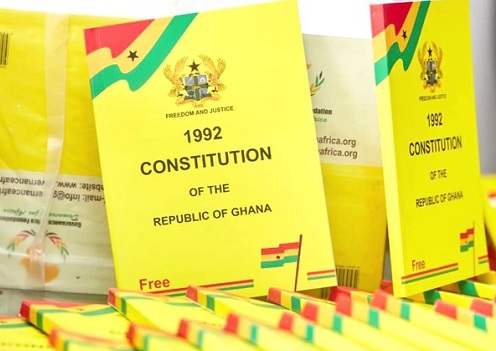Constitutions
Greetings and best wishes on the occasion of the commencement of yet another year.
It is my fervent hope that as we embark on another episode of the journey in the constitutional development of our country, we make giant strides in the governance of our beloved Ghana, especially in the upward growth and incremental development of our democratic credentials.
As we all know, Sunday, January 7, was Constitutional Day, the day the Fourth Republic came into being.
Given that this auspicious day fell on a Sunday, Monday, January 8, was declared a national holiday.
Having all enjoyed the holiday celebrations of the 1992 Constitution, it is an opportune time to delve into the substance of the Constitution.
What are constitutions?
A constitution is the supreme law of countries, which is the bedrock and source of the legal authority underpinning the existence of the state.
It is the structure upon which the framework, powers and organisation of the legal authority of the state is hinged.
It embodies the structure, powers and organisation of the country and, more importantly, for the purposes of this column, it sets out the rights and duties of citizens.
In most countries, all these are documented in a single book.
However, in England, they don’t have a single document that can be referred to as the constitution.
Instead, fundamental rules and structures of the government often take the form of customs, usage, and precedent, as well as an amalgamation of various statutes and legal instruments.
As such, Britain is sometimes designated as having an ‘unwritten constitution’.
It is unwritten in the sense that the body of laws which governs the organisation of the state is not codified into a single document.
Types
There are broadly two types of constitutions: unitary and federal. In a unitary constitution, all powers of government are concentrated at the centre (in a central government) and all powers and authority within the jurisdiction of that state emanate from there.
Ghana, the United Kingdom and Kenya are all examples of unitary constitutions.
On the other hand, in the federal constitution, as exists in the United States of America, power is split between a central government and a smaller state or federal government.
Usually, defence, foreign affairs and the running of the economy are centred on the central government in federal states.
Constitutions are further characterised by their mode of amendment.
In a flexible constitution, the rules and regulations, powers, etc. can be amended, changed and altered by a single legislative process, requiring just a simple majority of the parliament to effect the change.
However, in an entrenched or rigid constitution, the processes of amending the constitution are complex, detailed and very deliberately prescribed.
This is usually to ensure that adventurous elected officials cannot willy-nilly change constitutional clauses to suit themselves.
It is, thus, a mechanism of constitutional manipulation to forestall dictatorial government.
In many constitutions, the chapter which deals with the fundamental rights of citizens and avenues for redress are deliberately entrenched so as to prevent any government with a dictatorial tendency from easily eroding the constitutional rights of citizens.
Constitutions are important in that they provide the framework and basic rules by which a country is governed.
They also provide how a government is formed and who has the power to make laws, as well as checks and balances on governmental power.
Most constitutions are also aspirational in the type of society the country wishes to achieve.
As is very clear from the preceding paragraphs, constitutions are very important for the smooth running of a country and it is right that constitutional days are celebrated.
It was, therefore, a step in the right direction that January 7 was made a national holiday.
However, it would be desirable to reinstate July 1, also as a public day as that day marked the attainment of republican status and, hence, our ability to write our own constitution.
July 1 is emblematic of the emergence of modern Ghana and the foundation of the Republic.
It is my prayer that the day be recognised as such.
The writer is a lawyer.
E-mail: georgebshaw1@gmail.com



